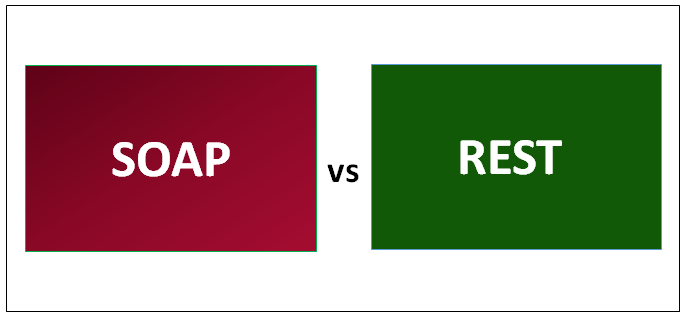Difference between SOAP and REST

Let’s understand the difference between SOAP and REST.
The first one is SOAP protocol (Simple Object Access Protocol) and the other is REST for Representational State Transfer. However, each technique has its own pros and cons. Therefore, it’s always beneficial to understand the situation of each design. Further, this tutorial will explain the key differences between these techniques.
SOAP is definitely the heavyweight choice for Web service access. It provides the following advantages when compared to REST
- Firstly, language, platform, and transport-independent (REST requires the use of HTTP)
- Secondly, works well in distributed enterprise environments (REST assumes direct point-to-point communication)
- Subsequently, provides significant pre-build extensibility in the form of the WS* standard.
- Lastly, automation when used with certain language products
REST is easier to use for the most part and is more flexible. It has the following advantages when compared to SOAP:
- First of all, no expensive tools required to interact with the Web service
- Secondly, a smaller learning curve
- Thirdly, efficient (SOAP uses XML for all messages, REST can use smaller message formats)
- After this, fast (no extensive processing required)
- Lastly, closer to other Web technologies in design philosophy
Make your resume stand out and become a Certified SoapUI Testing Professional. Try free practice tests here!
A great career is just a certification away. So, practice and validate your skills to become Certified SoapUI Testing Professional Now!

